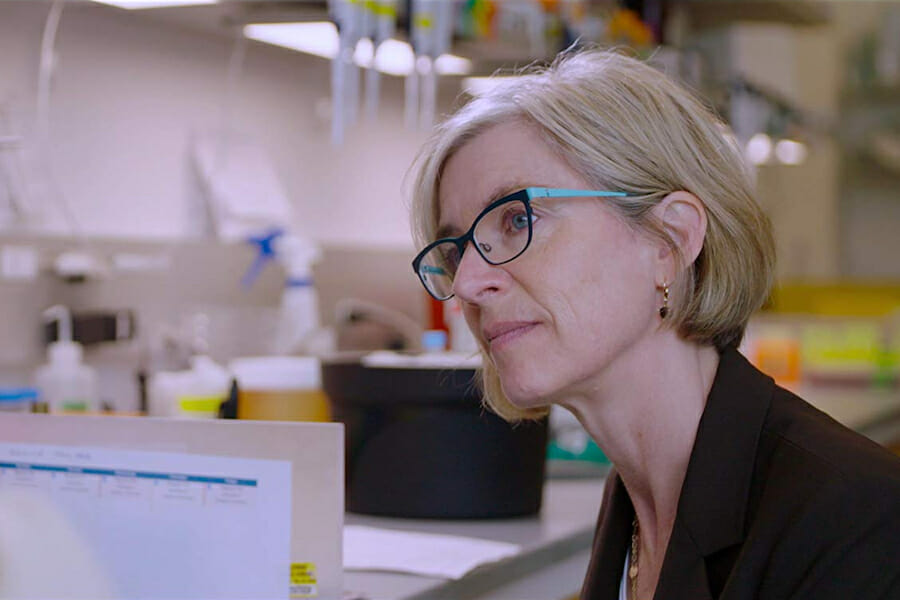
‘Human Nature’ Review
That feeling when you start up a 95-minute documentary and a black and white clip of a biologist giving a speech in 1966 fills the screen…is a moment of dread. Fortunately, filmmaker Adam Bolt quickly turns it into a fascinating education. The fellow giving the 1966 speech states that someday we will be able to alter human genes. More than 50 years later, Mr. Bolt’s Human Nature shows us that scientists are beyond that, and on the verge of developments that demand some serious and literally life-altering discussions.
Deep science and cinematic storytelling aren’t typically a good mix, but here we have a blending of journalists, researchers, and many types of scientists working with a knowledgeable filmmaker. They succeed in explaining the ‘why’ and ‘what for’ of gene-editing in a way that even a simpleton such as yours truly could follow. Going in, the concept of CRISPR (Clustered Regularly Interspaced Short Palindromic Repeats) was vague at best (for me), and those involved with the film explain how this has opened the scientific door to the building blocks of life through gene-editing.
For structure, the film is divided into six chapters: Needle in a Haystack, CRISPR, The Gene Machine, Brave New World, The Good Gene, and Playing God. These chapters touch on the story of young David Sanchez (afflicted with Sickle Cell Anemia), food and bacteria, Aldous Huxley’s book, eugenics, and morality. With so much to cover, the film excels in providing just enough for viewers, and putting the spotlight on those who can best explain their area of expertise or what results might mean.
Science often complements humanity while simultaneously standing opposed to nature. The film even shows the infamous Jurassic Park clip where Dr. Ian Malcolm tries to confront the idea of genetic altering by stating, “Scientists were so preoccupied with whether or not they could, they didn’t stop to think if they should.” There are also clips from Blade Runner and Gattaca, and they all lead us to the question on everyone’s mind…should we play God? Most agree that stopping genetic diseases is a worthy goal, but how about designer babies? That’s where discussion of Huxley’s Brave New World and Hitler come in. Should we be architecting the “perfect human being”? When Dr. Jennifer Doudna asks, “What have I done?” she’s smiling on the outside as a scientist, but surely has doubts as a person.
Keegan DeWitt’s score is top-notch for a documentary, but a film about isolating individual and specific strands of DNA isn’t really about style. Listening to bioengineers discuss their own work and that of others in the field, gives us the basics of the science involved; however, as a society, we must come to grips with that big question. Do we play the hand we’re dealt, or do we stack the deck and keep one up the sleeve? At some point very soon, we must decide. As the film states, after 2 billion years, this is the end of the beginning. What does the next stage look like?

